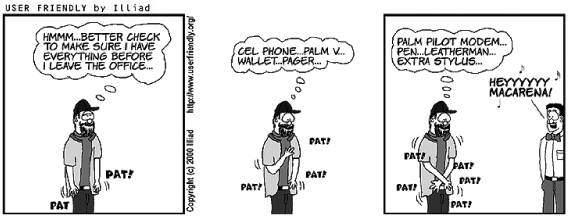Chapter 3. Routines
| The term "routine" has a bad reputation. How many times have you seen advertisements for products that promise to "get you out of that old routine" or refer to a "boring routine?" Boring is bad, right? No! As a system administrator I crave boredom. I want an entire week when things happen on schedule, projects get done on time, software installs without trouble, and documentation gives me the right answer. "Give me just one boring day!" I shout when a big server crashes or a customer comes to me with an impossible but urgent request. What I wouldn't give for an entire boring month! There are technical means to improve the situation. We can make things more boring (in a good way!) through long-term planning and suitable infrastructure that makes things run smoother. For example: automating new machine installation so that every host starts out the same, controlling and enforcing updates so all hosts stay in sync, keeping security infrastructure in place so that it is ubiquitous and less burdensome, and so on. There are books about those topics alreadyI happen to prefer The Practice of System and Network Administration (Addison Wesley). I don't want to make system administration 100 percent boringI don't think that's actually possible. As long as there are new software packages to try or new hardware platforms to explore, there will always be plenty of fun in system administration. There will also be a certain amount of chaos. System administration deals with the real world, and the real world is full of chaos. However, I do want to eliminate the frustrating chaos that keeps me from having fun. Here's a little something about routines to keep in mind:
Programmers figured this out a long time ago. They reuse code libraries rather than reinventing every new feature every time. Why reinvent the print function for each program you write? Sure, C's printf function isn't the most efficient way to print formatted data, but imagine how crazy (and inefficient) it would be if every program ever written reinvented a way to print data. Routines are very powerful because they enable us to think less, reserving brain cycles for more important tasks. This is similar to saving brainpower by writing down our appointments and to do items instead of trying to memorize them.  |
EAN: 2147483647
Pages: 117